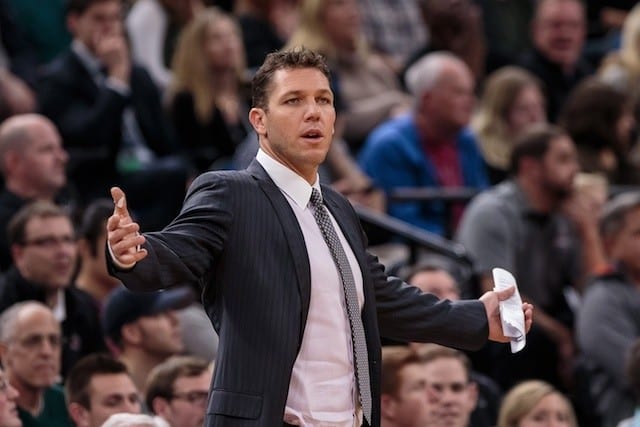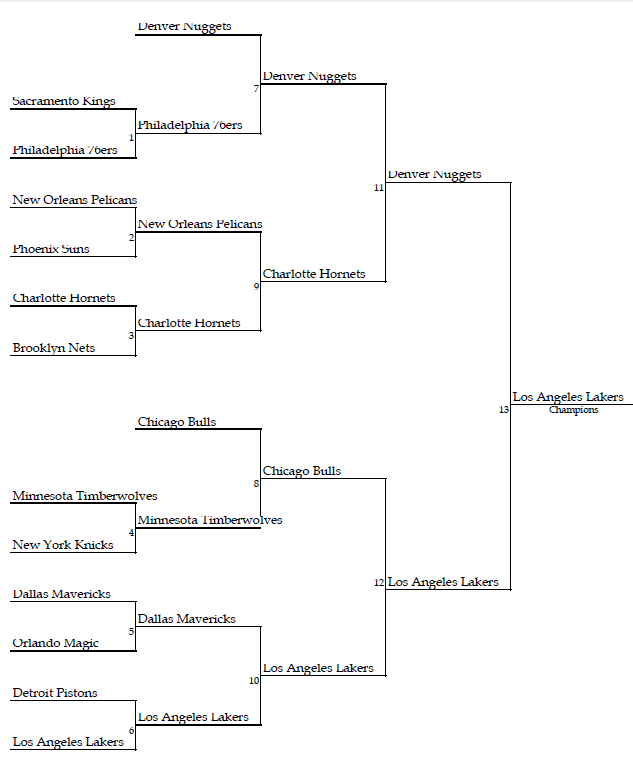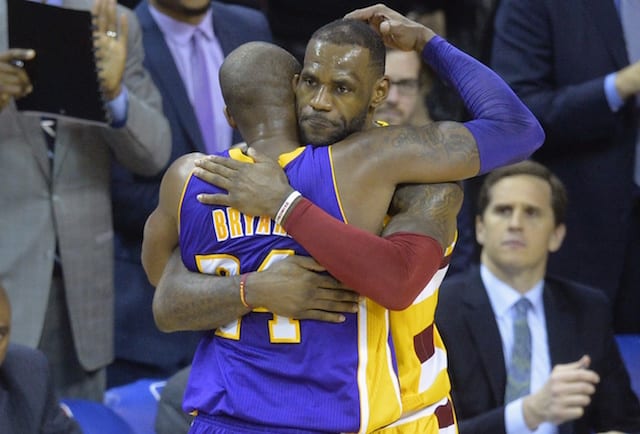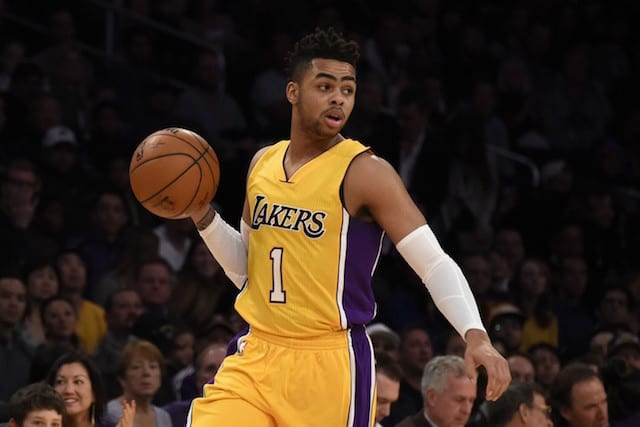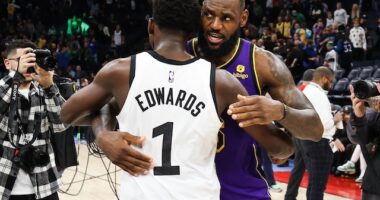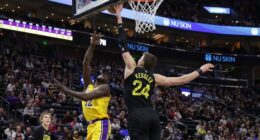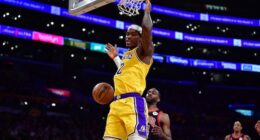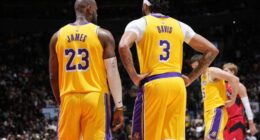There is no denying that losses currently help the Los Angeles Lakers more than wins do, and there is a subset of fans actively hoping the team they support loses as much as possible. Strange as it is, the Lakers 2017 draft pick is top-three protected and the lower they fall the better the odds are that they will keep it. If they can hang onto it the Lakers also get to keep their 2019 pick, which would be a major boon for the rebuild.
With that being the case, head coach Luke Walton is feeding tons of minutes to the young players while benching veterans, because if winning is not beneficial then they might as well speed up the growth of the youngsters in the meantime.
The Lakers are far from the only team employing this tactic (looking at you, Suns), but having gone through the past few seasons of this exercise, one thing has become abundantly clear: tanking sucks.
It creates a disconnect between players and fans that should never exist. Case in point, last Friday fans saw Jordan Clarkson explode for a career-high 35 points, including an incredible four-point play when Los Angeles was on the ropes that eventually led to an overtime victory over the Timberwolves.
And it was agonizing.

Clarkson’s exploits were amazing, but the uncomfortable reality is that Los Angeles simply can’t risk lowering their lottery odds by winning games. Just as fans cheered live at STAPLES Center, many at home groaned in dismay with each shot Clarkson hit.
The players, on the other hand, don’t care much about the draft pick. After all, a first-round pick just means that one of them doesn’t have a spot on next year’s roster. For Clarkson and D’Angelo Russell, in particular, winning games now and losing the pick could mean job security because the 2017 draft features a glut of talented guards
Players are desperately trying to win while die-hard fans are praying that they lose, which just feels wrong.
Enough is enough and it’s time for a change. Here are a couple of ideas on how the NBA can end tanking once and for all.
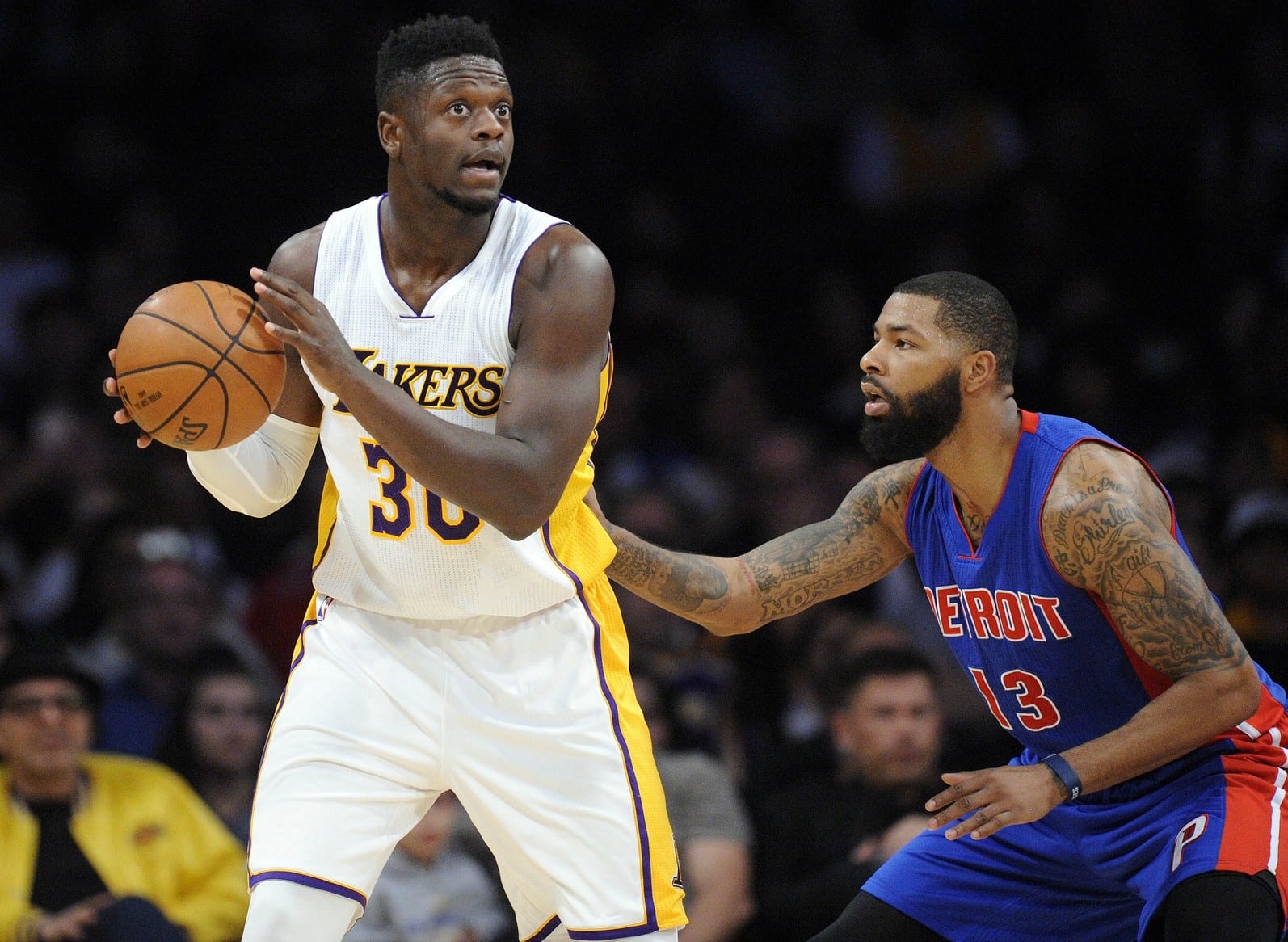
The Consolation Tournament
This solution would be both effective and entertaining. Taking a cue from March Madness, the NBA could host a one-week long single-elimination tournament for non-playoff teams at the conclusion of the season in order to determine the draft order.
Here’s how it would work:
The 14 non-playoff teams would be placed into a bracket based on where they finish the season, with the top two teams earning an automatic bye to the second round. As teams get eliminated, their regular-season record would determine what draft pick they end up with. For example, the six teams eliminated in round one would get picks 9-14, with the worst record getting 9, the second-worst 10, and so on.
The two “bye” teams would enter into the second round and the tournament would progress from there (meaning they are guaranteed a pick no lower than eight, thereby adding incentive to win games). Team record would still play a role in determining what draft pick a team had, but tanking outright would still be much less enticing, especially since home court would be decided based on record. Tanking wouldn’t make any sense as developing team chemistry and playing quality basketball would be of the utmost importance heading into the tournament.
Plus, a single-elimination NBA tournament would be such a fun way to end the season for fans of non-playoff teams, and playoff squads would get a few more days between the end of the regular season and the start of the playoffs to rest and strategize. Here is what the (only slightly biased) sample bracket could look like based on current standings:
Now, the obvious problem with such a system is that it could result in a good team that barely misses the playoffs tearing through the weaker squads at the bottom of the league and winning themselves a superstar in the draft. In order to level the playing field, we would handicap the tournament using point differential, or in other words, spot points to the weaker team at the beginning of the game.
Put into practice, the Los Angeles Lakers have a point differential on the season as -7.5, which is the worst in the league as of this writing. The Detroit Pistons, their first-round opponent in the bracket above, have a point differential of -1.3.
Using the difference between the two, we would round to the nearest whole number and the Lakers would start the game up on Detroit six to nothing. The stronger team still has home court advantage, but that head start should help level the playing field a bit and create more of a chance that a weaker team will advance.
Draft picks could still be traded, but obviously, those deals would have to come after a team finds out for certain which pick they will have.
Incentivizing the players would be an issue, as none would be thrilled about getting their team a high draft pick that will just come in and take someone’s job. In order to rectify this, we add a cash component with players winning part of a progressively larger payday as they advance in the tournament, with the team that wins it all splitting a significant amount of prize money.
The NBA makes more money, players make more money, no one tanks, and fans get to watch a short, fun tournament to finish the year. Everyone wins.
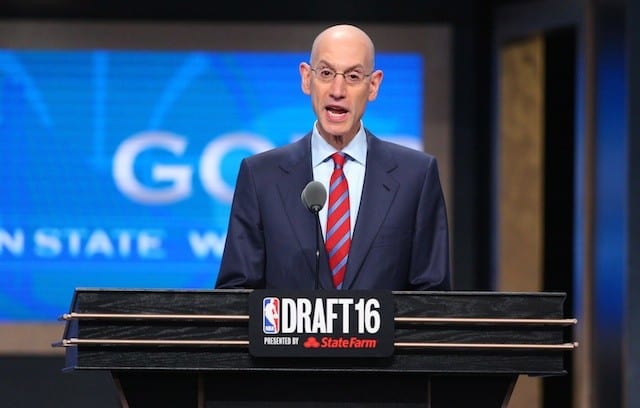
Ditch The Draft
Another solution to the tanking problem would be to ditch the draft entirely and treat collegiate and international players as free agents. It’s a radical move, but one that, with a few tweaks, could ultimately make for a better league.
One of the problems with the draft itself is that players have very little ability to determine which team they play for, and that’s not necessarily a good thing. The Philadelphia 76ers drafted a plethora of centers with the goal of eventually trading one or more of them down the line, but for the players themselves, being stuck in a timeshare with a fluctuating role certainly isn’t an ideal situation to begin a career in.
However, owners love the cost-controlled contracts the rookies offer. After all, why spend big bucks on a player who may not truly be able to help the team for a few years? In order to get owners to sign off on the plan, a salary restriction would need to be in place.
This is what I would propose: the rookie free agent period would begin a week after the NBA Finals and would last until the start of regular free agency in July. The team with the worst record would have a maximum of $10 million to spend on rookie free agents. Moving up the standings, every spot would have $300,000 less than the one before it. Based on current standings, the Brooklyn Nets would have $10 million, the Los Angeles Lakers would have $9.7 million, Phoenix Suns would have $9.4 million, all the way down to the Golden State Warriors, who would have just $1.3 million.
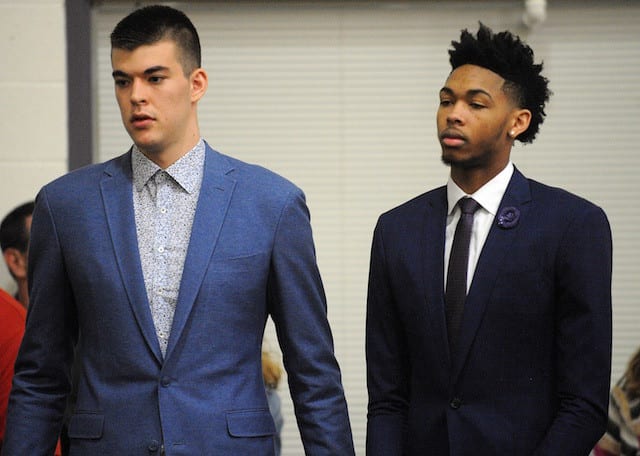
In total, this is more than first-round rookies make currently but teams would not need to spend their entire sum on just one player, and wouldn’t be required to spend any of it if they so choose. Contracts would be structured within league rules, including team options, player options, performance bonuses, etc. Rookie free agent money would not roll over from one year to the next in order to prevent teams from hoarding rookie money and then tossing out a huge sum when the next superstar appears.
Teams who are capped-out could still spend their full amount on one or more players but they would still count against a team’s cap, as they do now when a team drafts a player.
Part of the strategy involved would be deciding how to get the best bang for your buck. Using players from the upcoming draft as an example, the Nets could offer Fultz a deal starting at $10 million per year or they could offer $5 million a piece to Malik Monk and De’Aaron Fox and hope that the opportunity to continue playing together would be enough incentive for each player to accept a bit less than they could likely get elsewhere.
Another cool wrinkle: rookie free agent dollars could be included in trades. For example, instead of trading Lou Williams for the Houston Rockets’ draft pick, the Lakers would instead get say $2 million in rookie free agent money, which they could then use as they see fit.
This type of system discourages tanking because while bad teams would have more money to spend, that doesn’t guarantee that they will be blessed with a top prospect. With rookies having the freedom to choose, organizations that create a strong culture and make smart moves would have an advantage, as they should. Teams that are mismanaged would no longer be automatically gifted blue-chip prospects as a reward for their struggles.
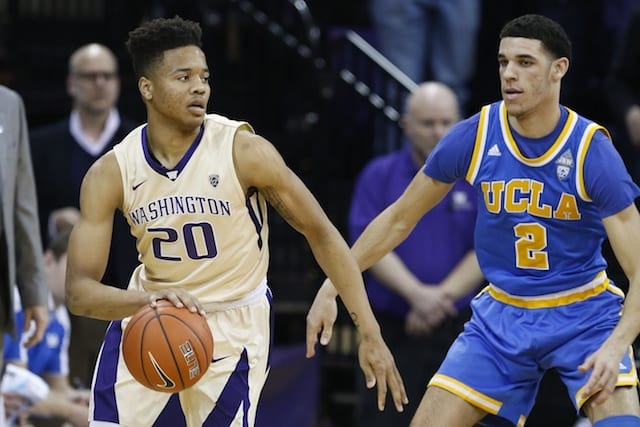
Additionally, the dollar amount simply isn’t enough to make tanking sensible. If Ball or Fultz see a team that is a perfect fit for them on a number of levels but that team has only $8.8 million to spend instead of 10 million that likely isn’t enough of a deficit to stop them from going to the better environment. However, players would be extremely unlikely to accept say $1.3 million from the Warriors instead of $10 million from the Nets, which helps ensure that the rich don’t just get richer.
Under the current system, winning a few extra games and getting the fourth pick in the lottery means a team has no shot at either Ball or Fultz, but free agency would right that wrong. In fact, winning a few extra games could make a team more attractive because it would show that they are closer to making a leap than a team at the bottom of the league.
Of course, small market teams would likely not be fans of this system as the assumption would be that most players would prefer large markets like the Lakers in Los Angeles or Knicks in New York, but in this day and age players can be stars in any market, so those concerns aren’t quite as valid as they would have been 15 years ago.
This system would not just remove much of the incentive for tanking, but it would also potentially aid in the development of the next generation of stars by allowing them to get to teams that are best situated to help them grow.
While it’s unlikely that a change is made, either of these systems would be a step in the right direction to end tanking, and that’s certainly a goal worth pursuing.

